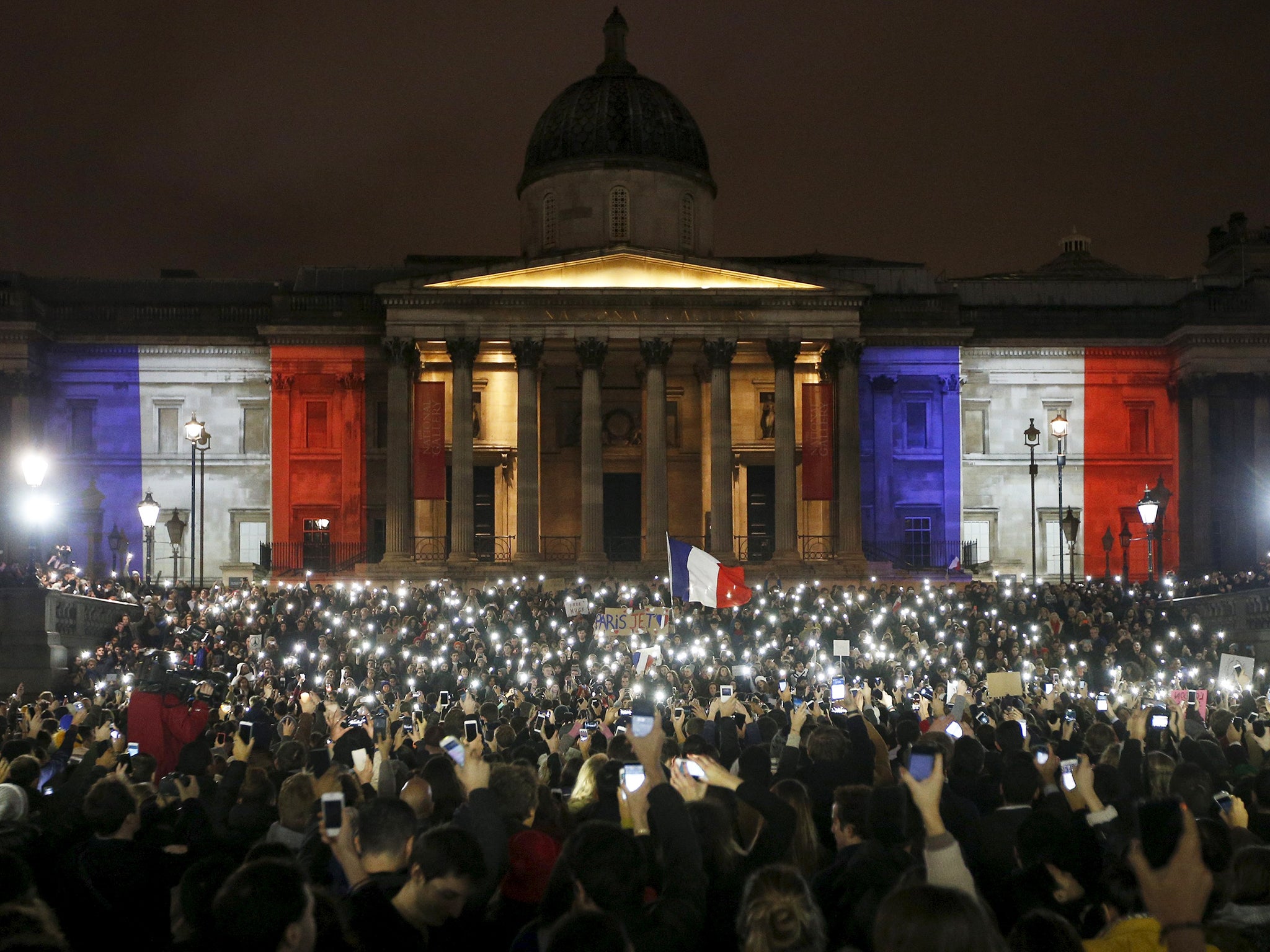Telling people off for 'selectively mourning' Paris more than Beirut will drive them away from the left
A response which tells people to stop mourning their neighbour, or to stop worrying about explosions closer and closer to their own front door, is just about the least convincing way of trying to alter how people think about the world

Your support helps us to tell the story
From reproductive rights to climate change to Big Tech, The Independent is on the ground when the story is developing. Whether it's investigating the financials of Elon Musk's pro-Trump PAC or producing our latest documentary, 'The A Word', which shines a light on the American women fighting for reproductive rights, we know how important it is to parse out the facts from the messaging.
At such a critical moment in US history, we need reporters on the ground. Your donation allows us to keep sending journalists to speak to both sides of the story.
The Independent is trusted by Americans across the entire political spectrum. And unlike many other quality news outlets, we choose not to lock Americans out of our reporting and analysis with paywalls. We believe quality journalism should be available to everyone, paid for by those who can afford it.
Your support makes all the difference.In the wake of events like the massacre in Paris, almost all responses seem inadequate or wrong – especially the official and establishment ones. Solidarity with the French nation is an easy sentiment, but far from a simple one. And among a wide variety of commentators and activists – predominantly on the left – it has become usual to denounce the selective mourning of Parisians. ‘Why express your concerns so publicly for Paris, when Beirut suffered a suicide attack a mere day earlier?’ these people ask. ‘And why is the French flag suddenly everywhere I turn?’
Flags are, to be sure, a bad way to remember people. Meaningful solidarity – which can only ever be and aimed at addressing real political and material problems, and therefore far beyond any sense of nation – cannot be adequately expressed through symbols with so much colonial baggage. In the domestic politics of France, it is an explicitly national pride and national mourning will be used as cover by the far right and the political centre for a new set of attacks on Muslims in French society.
But some of the critical responses to mourning the dead in Paris are hard to swallow. The political dimensions are different – and the media coverage doubly so – but the logic that asks why everyone is so concerned about Parisians is the same as that of those who demand to know why the left focuses so much on Israeli war crimes when there are so many others around the world, such as in Western Sahara or Tibet. If you’re going to campaign on Palestine, we’re often told, then you have to campaign against every human rights violation in the world.
Of course we on the British left are also in favour of solidarity with the people of Western Sahara or Tibet. But why do apologists for the oppression of Palestinians only start caring so publicly about these places when we start criticising the Israeli government?
Mourning and political solidarity are always selective. The left does focus disproportionately on what happens in Israel/Palestine, partly because it is such a pivotal question for regional and global politics, but also because it is close to home. Events in Jerusalem or Jenin are very linked to Britain’s imperial legacy – and injustices there hold a special kind of symbolism.
Paris is close to home. Here is a place to which many people have been on holiday, which they have studied in GCSE French, or which is home to their friends and family. These attacks will play a pivotal role in the politics of our own region – moulding and licensing our governments’ response to the refugee crisis and their persecution of muslims.
A response which tells people to stop mourning their neighbour, or to stop worrying about the proliferation of explosions closer and closer to their own front door, is just about the least convincing way of trying to alter how people think about the world.
There is an important truth that many of these criticisms are trying to get at and rectify – that the political establishment and the media is systematically racist and Eurocentric, that they value the lives of poor people of colour far less than they value the lives of rich white westerners. But the atrocities in Beirut happened well before the attacks in Paris – and until bombs exploded in Paris, barely anyone talked on the left talked about them either.
Nationalism and eurocentrism do need to be opposed. To do that, we need to locate the problem on a societal and collective level, rather than obnoxiously berating those who display a French flag or mourn the Parisian dead. We need to create a public consciousness that empathises with the victims of atrocities across the world, not simply seek to reactively redirect grief over events as they emerge.
For now, there are thousands of people, who, confronted with an array of pious pronouncements from leftwing commentators, are thinking: ‘Well, those guys are weird. And why did they only start caring so publicly about explosions in Beirut when I changed my Facebook profile picture to the tricolour?'
For the other side of the argument, click here
Join our commenting forum
Join thought-provoking conversations, follow other Independent readers and see their replies
Comments